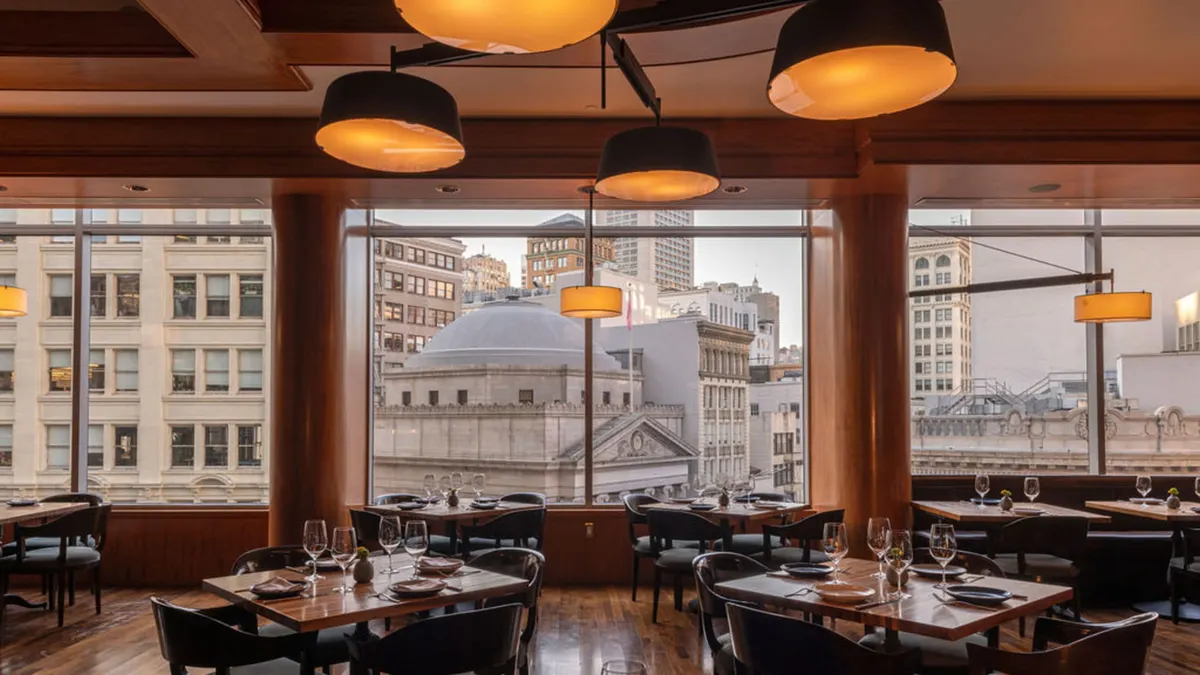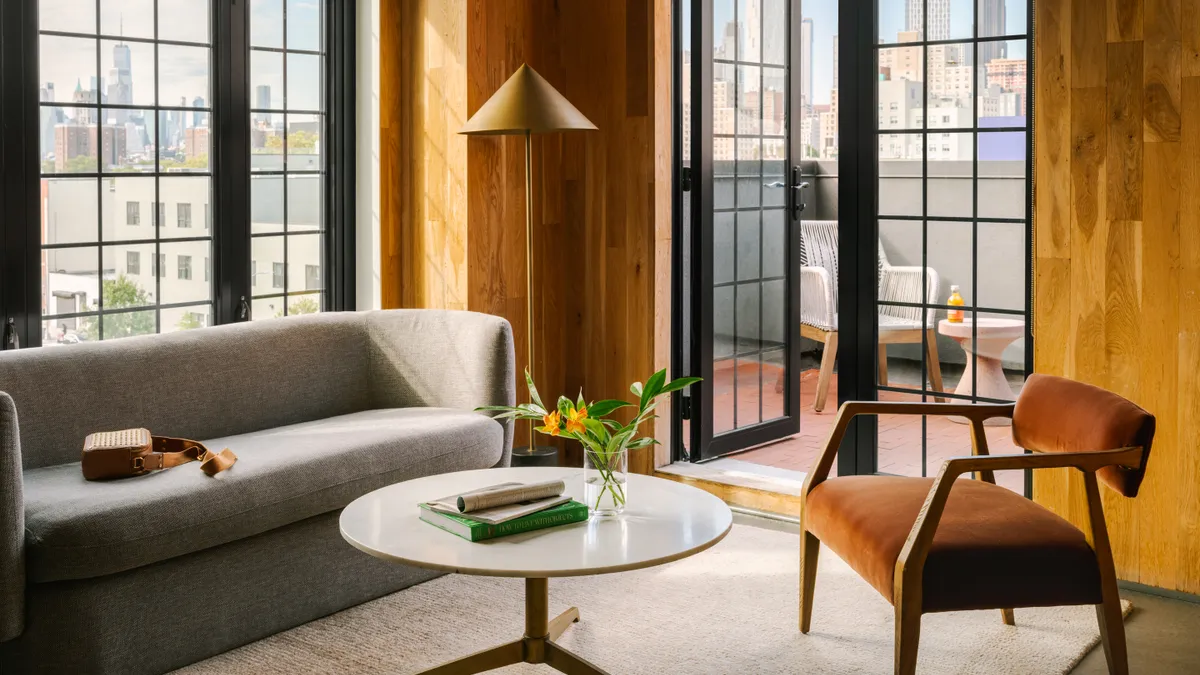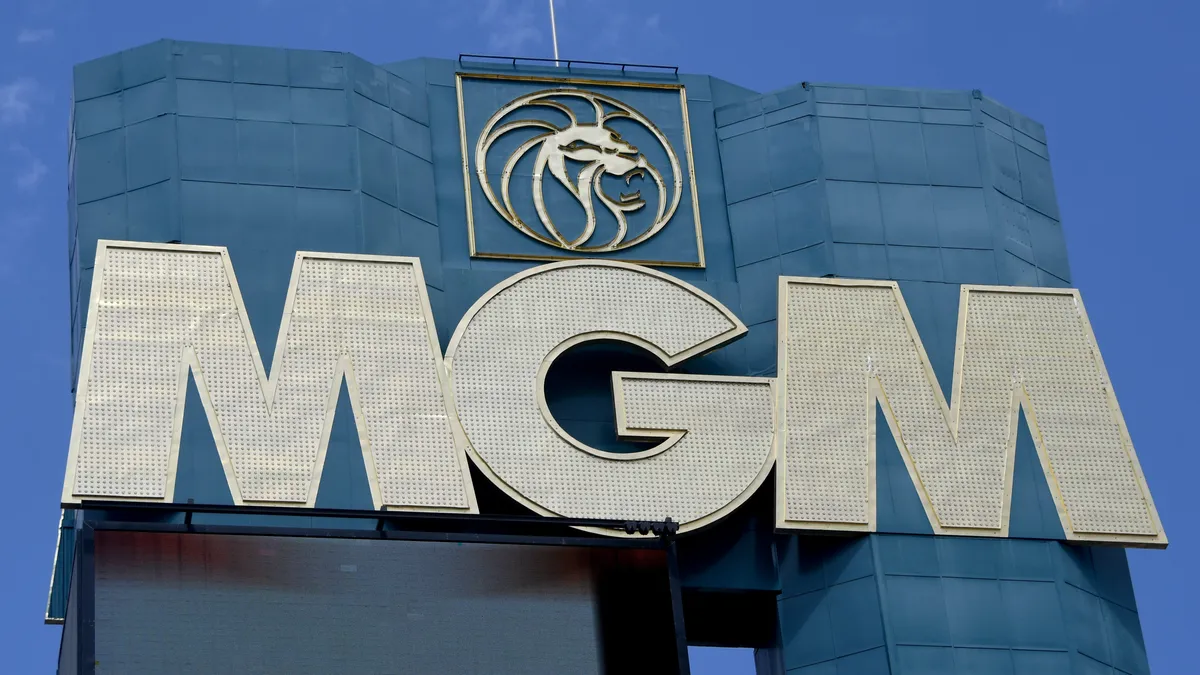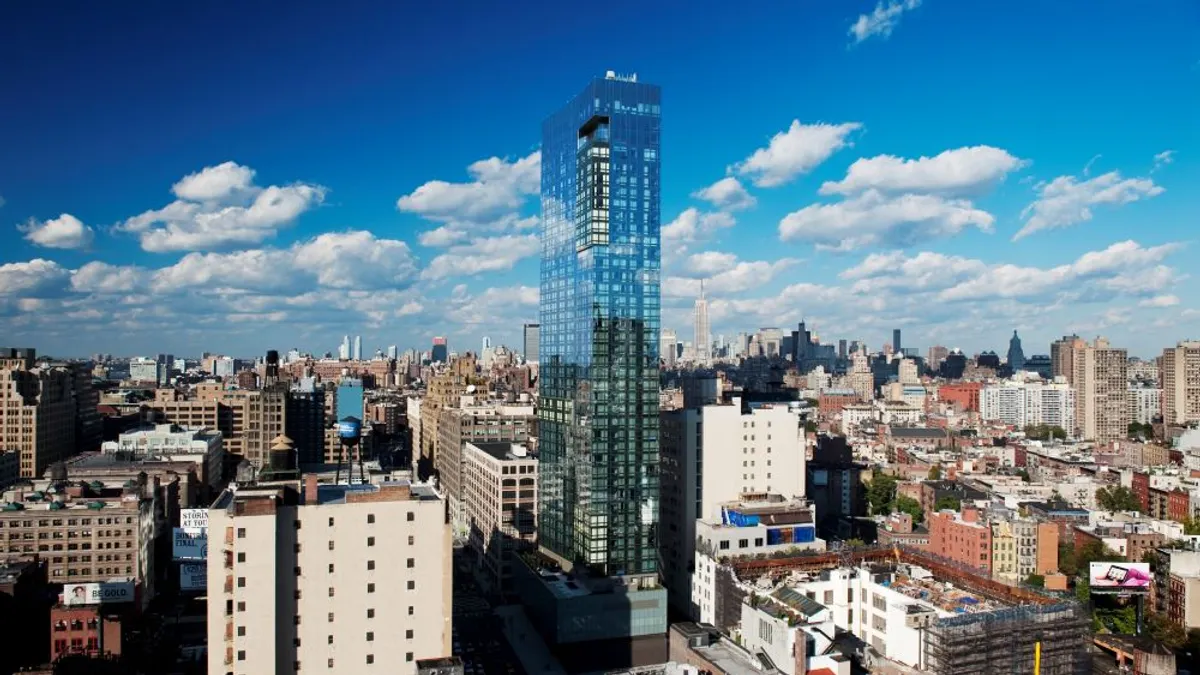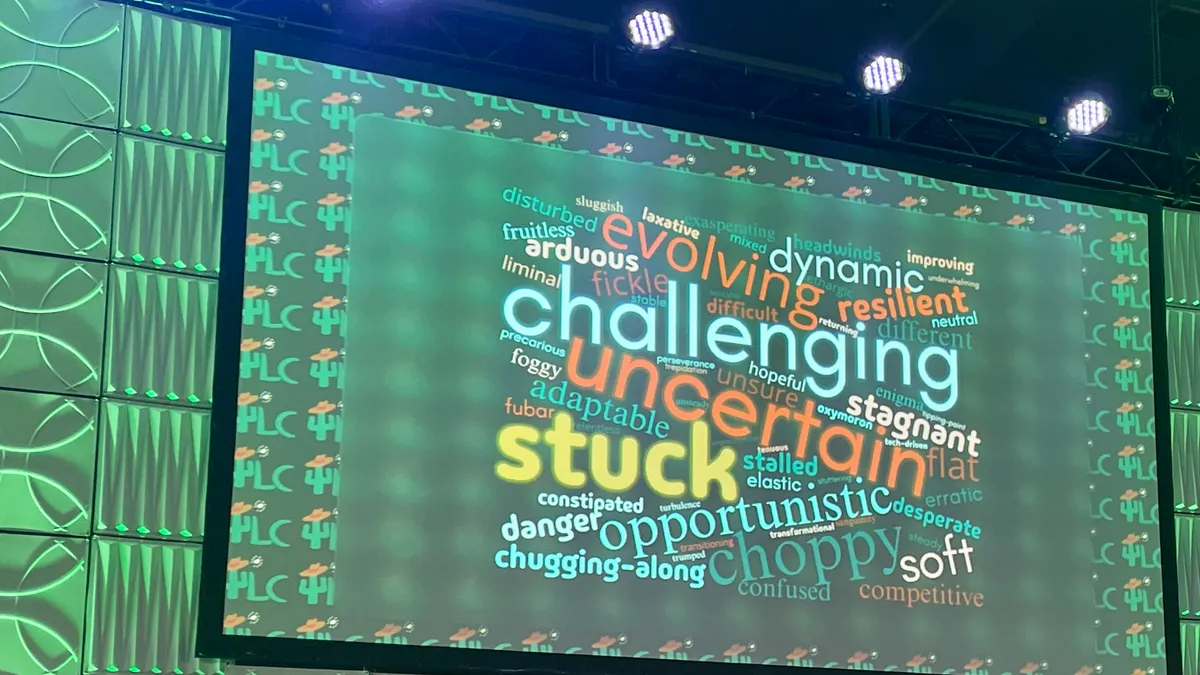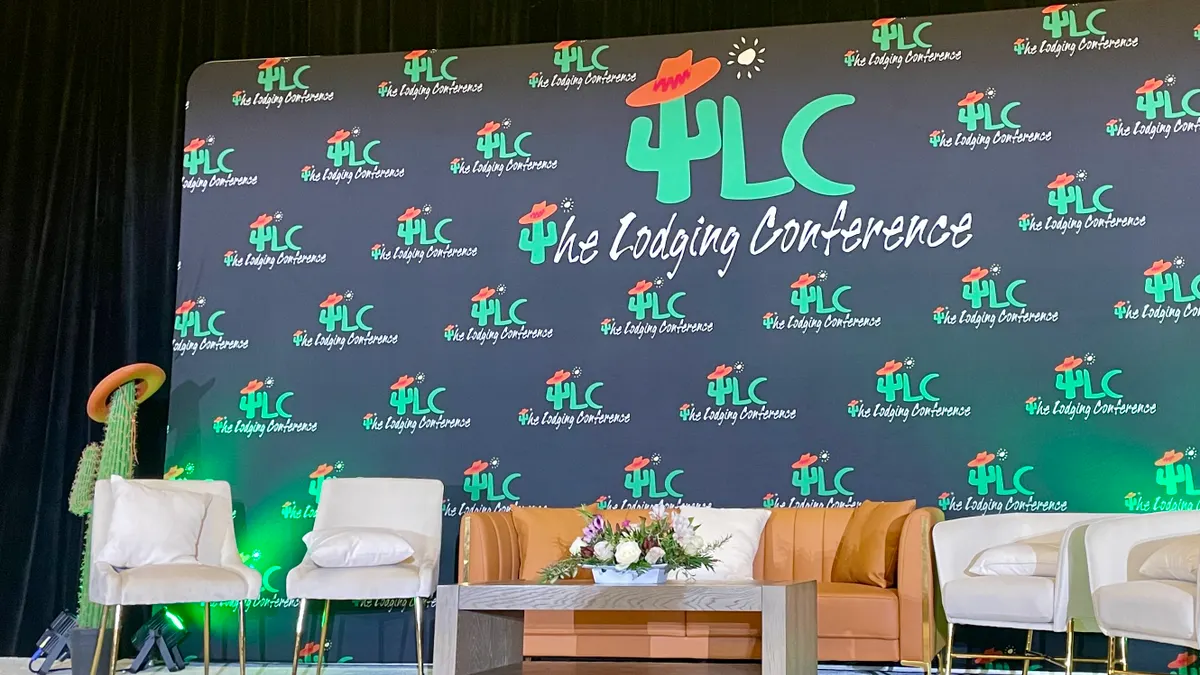Tock, a reservation platform primarily used by restaurant goers, is aiming for a new clientele: hotel guests.
While Tock, founded in 2014, has been working with hotels for a few years now to help guests book reservations for on-property restaurants and experiences, the company is ramping up investment in the hotel industry to take advantage of the growing experiential travel trend.
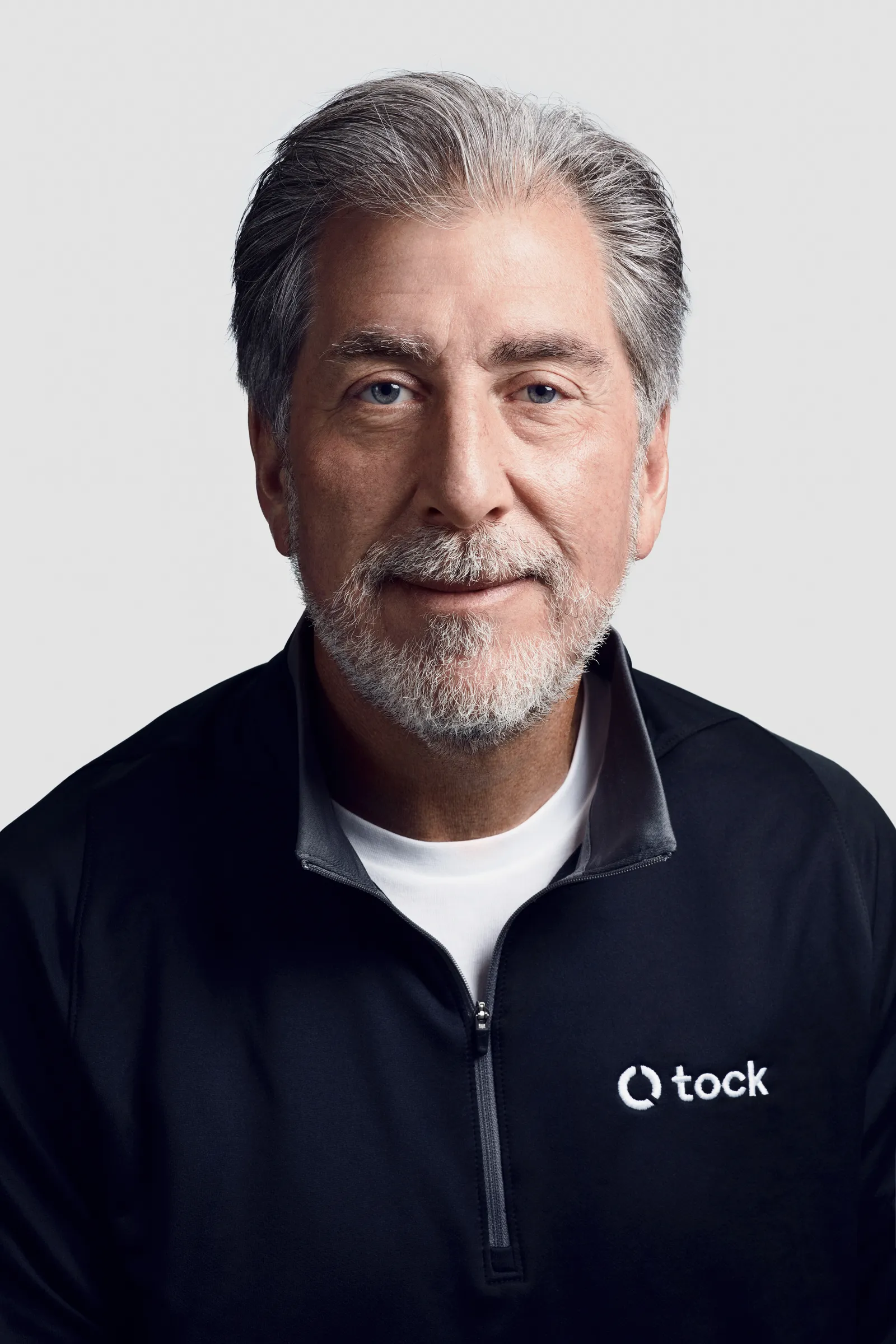
Fresh off a pending $400 million acquisition by American Express in June, Chicago-based Tock inked a deal with Curator Hotel & Resort Collection in July. For Curator and Tock’s other hotel partners — including Hyatt Hotels Corp., Four Seasons Hotels & Resorts and Vail Resorts — the company provides a platform that allows guests to book experiences happening on property in a bid to monetize underutilized spaces and drive ancillary revenue.
Head of Tock Matthew Tucker sat down with Hotel Dive to discuss what pushed the reservations giant into the hotel sector, the “significant” revenue opportunities available in the experiential amenity space and how Tock’s hotel play sets it apart from competitors like OpenTable and Resy.
This interview has been edited for length and clarity.
HOTEL DIVE: Tock was initially used by restaurants. How did it transition into a product for hotels?
MATTHEW TUCKER: We started in the restaurant industry almost exactly 10 years ago. We were purpose-built for the restaurant industry at that point, because we started as the homegrown software for a restaurant in Chicago called Alinea.
Tock was created to solve a big issue in restaurants: the no-show issue, when [an individual] books a reservation but doesn't show. That was affecting probably 25% of the booked reservations [at Alinea], and the folks there — who poured a lot of money into their product, the food they sourced, their labor and the the space itself — found it difficult to support that level of investment when nearly a quarter of the people were just not showing up.
We created Tock to solve that no-show issue. And the real essence of what Tock did was charge people upfront, basically buying a ticket to a dinner or an experience at a restaurant. That took no-show rates from, call it the mid-20 [percentages], down to, let's say, 2%, and so that was a huge revelation in the restaurant industry. Many fine-dining restaurants signed up for Tock almost immediately. And then we expanded.
For the customers that we work with, Tock is a way that they can help monetize the guests. By creating things like an experience inside a hotel restaurant or property, it gives hoteliers a way to drive incremental revenue.

Matthew Tucker
head of Tock
We started to serve hotels quite a while ago. We just inked an interesting [partnership with Curator] but we’ve been working with Hyatt, Four Seasons, Vail Resorts, Fairmont and Peninsula, being utilized by hotels in two ways. First, hotels started to use Tock for their restaurants, and then, as we expanded the product offering to offer a full-blown events package, a lot of the hotels transitioned into using Tock not just for restaurants, but for events and experiences in the hotel itself.
It's an events and experiences platform that allows hotels to monetize their guests outside of the room and outside the restaurant. So that can be creating special events like an Easter egg roll, a jazz brunch or a lecture series — there are countless ways that hotels have created curated, memorable events and experiences on the Tock platform.
Across the restaurant industry in 2024, dollars are down, and hotel revenue is looking weaker than original projections. For the customers that we work with, Tock is a way that they can help monetize the guests. By creating things like an experience inside a hotel restaurant or property, it gives hoteliers a way to drive incremental revenue.
How is experiential travel evolving, and what is the significance of connecting hotel guests to unique experiences?
We know that top businesses that offer more than just ordinary reservations see 80% more repeat guests. And there's a lot of data that we see on experiences driving higher check sizes across top customers, about 30% higher checks on average than just a typical reservation.
Experiential travel is something that we think is going to allow our customers to capture a larger share of wallet from their guests who are looking to justify or rationalize spending money [in these] uncertain economic times.
The post-COVID exuberance of getting back out and traveling or going and sitting down at a restaurant has dissipated, without question. So you're seeing a natural effect of the post-COVID spending spree going away, but in a high interest rate environment, people are concerned about what they're going to spend money on, and I think that experience is something that they can rationalize as a guest much more easily than just going in for another filet mignon at a nice restaurant.
Guests want something unique and different, which is why all of our hotel customers are looking for a platform to create an event, to market the event and to try to draw the guests either back to the area, to the specific hotel for the first time or to join them back for the second and third visit.
What pushed Tock to expand beyond food and beverage and into experiences, and what advantages does the hotel sector pose in this regard?
The pandemic was the impetus. Historically, we crossed over into hotels via their restaurants, but customers started to utilize Tock beyond restaurants during COVID. That was clearly the jumping-off point to go beyond the dining room.
Guests want something unique and different, which is why all of our hotel customers are looking for a platform to create an event, to market the event and to try to draw the guests either back to the area, to the specific hotel for the first time or to join them back for the second and third visit.

Matthew Tucker
head of Tock
We do believe fundamentally that with a little creativity and using a platform like Tock there are significant gross dollars that can be made [by hotels] from the guests, and the guests will gladly pay because they want an experience, one they can go home and tell their friends about, that they can post pictures of on Instagram. We believe that there are a lot of dollars to be captured in the hotel industry with events and experiences.
How does Tock stand out from competitors, and are there any growth plans for hospitality that you can share?
Our core restaurant competitors OpenTable and Resy don't do anything in the hotel space (beyond on-property restaurants). And they don’t have a product that could even approach what we have and what we've invested in over the last several years.
Unfortunately, we're part of a public company, so we don't do any forward-looking projections, but I will say that we have a team dedicated to working on the hotel product every single day. We believe that this is a significant growth area for Tock. In 2025 and going forward, we are investing significantly and creating a product that is the best in class.





